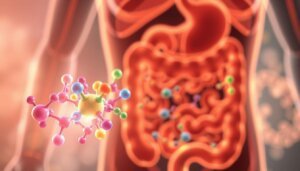Hormonal imbalances and changes can contribute to the development and progression of sleep apnea and other breathing disorders. Key hormones involved in respiratory regulation include sex hormones (testosterone and estrogen), thyroid hormones, and cortisol.
Testosterone has been linked to an increased risk of obstructive sleep apnea (OSA) in men. High levels of testosterone can lead to the relaxation of the upper airway muscles, increasing the likelihood of airway collapse during sleep. This is one reason why OSA is more prevalent in men and tends to worsen with age as testosterone levels fluctuate. Testosterone replacement therapy in older men must be carefully monitored to avoid exacerbating sleep apnea symptoms.
Estrogen and progesterone play protective roles against sleep apnea in women. Estrogen promotes the stability of the upper airway muscles, while progesterone stimulates respiratory drive and helps keep the airways open. However, during menopause, the decline in estrogen and progesterone levels can increase the risk of developing sleep apnea. Hormone replacement therapy may help alleviate some sleep apnea symptoms in postmenopausal women, although the benefits must be weighed against potential risks.
Thyroid hormones also influence respiratory function. Hypothyroidism, characterized by low levels of thyroid hormones, can lead to muscle weakness and reduced ventilatory drive, contributing to the development of sleep apnea. Managing thyroid hormone levels through appropriate therapy can improve respiratory function and reduce the risk of sleep apnea.
Cortisol, the stress hormone, plays a role in regulating the body’s response to respiratory challenges. Chronic elevated cortisol levels, often resulting from stress or sleep deprivation, can contribute to inflammation and fat deposition around the upper airway, increasing the risk of airway obstruction. Managing stress and ensuring adequate sleep can help mitigate the negative impact of cortisol on breathing disorders.
In conclusion, hormonal contributions to sleep apnea and breathing disorders are significant and multifaceted. Testosterone, estrogen, progesterone, thyroid hormones, and cortisol each influence respiratory function and airway stability. Understanding these hormonal influences can help in developing targeted treatments and interventions for individuals with sleep apnea and other breathing disorders, promoting better sleep and overall health.


